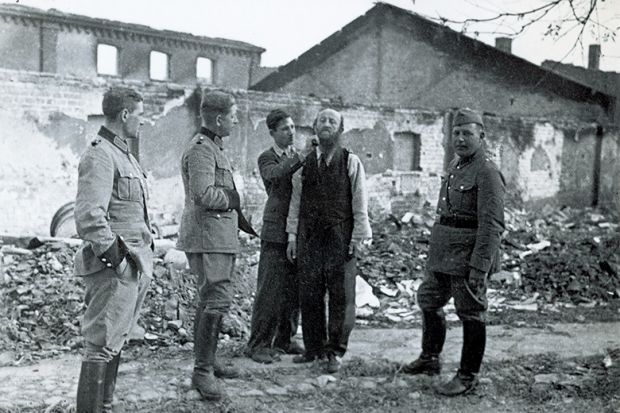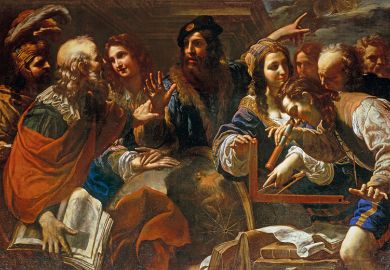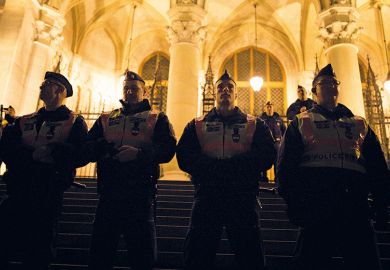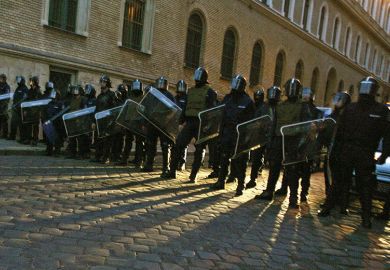A new law in Poland that threatens those who say that Poles played any part in the Holocaust with up to three years in prison will create an atmosphere of “inner censorship” for the country’s historians, reminiscent of its communist past, critics have warned.
Poland has been internationally condemned over the law, which some historians say attempts to whitewash broad swathes of Polish history.
It is the latest example of creeping historical censorship in eastern Europe, where rising nationalist tensions are leading to fresh rows over the past, particularly about the Second World War.
In Poland, the key clash is between historians who have uncovered evidence of Polish complicity in atrocities against Jews and the government line that Poles were victims, who nevertheless helped to shelter Jews from Nazi persecution.
The Warsaw-based Polish Centre for Holocaust Research described the law as an “unprecedented (and unknown in a democratic system) intrusion into the debate about the Polish history”, but said that its work would not be stopped by the legislation.
The law contains an exemption for academic and artistic work, explained Jakub Petelewicz, academic secretary at the centre.
“However, the problem is with a lack of definitions,” he said. Confusion could arise over an MA thesis, for example, he said.
Dr Petelewicz also fears that the law will prevent Holocaust scholars working with schools and pupils; stop them discussing their findings publicly; and strip out from school curricula incidents that cast Poles in a bad light. Overall, it could lead to “frozen” research and public debate about the Holocaust in Poland, he said.
Another element of the law gives non-governmental organisations the right to sue individuals or organisations in order to “defend the good name of the Polish nation”, Dr Petelewicz said. He noted that right-wing groups could deploy this against the centre and that, in this situation, there would be no artistic or academic exemption.
The law does not cover only the Holocaust, Dr Petelewicz explained, but also tries to prevent any diminution of massacres of Poles by Nazi-allied Ukrainian forces during the war, and to stifle any criticism of post-war Polish partisans – who have been accused of atrocities against Jews and Ukrainians – who fought the communist government. The overall effect is to “pressure” historians to “diminish the negative aspects [of Polish history] and highlight Polish suffering”, he said.
Debate about Poles’ role in the Second World War had shown signs of opening up: the publication of a book in 2000 about a massacre of Jews by their neighbours in a Polish town led to the erection of a memorial and a public acknowledgement by the president that Poles had been among the perpetrators.
But since then, the narrative has turned to emphasise Polish victimhood and heroism. A Museum of Poles Saving Jews in World War II was opened in 2016, and it was visited by Poland’s prime minister earlier this month.
The law is part of a broader “politics of history” pursued by the country’s ruling Law and Justice party, according to Geneviève Zubrzycki, a professor of sociology at the University of Michigan, who has written about the new legislation. It has even sought to delegitimise the Solidarity-led post-communist government in Poland for not having pursued a firm policy of “de-communisation”, she said.
The law was being used by the ruling party to signal to its supporters that it was sticking up for Poland’s historical reputation, Mr Petelewicz said.
It could still be found to be unconstitutional, explained Dariusz Stola, director of the Warsaw-based Museum of the History of Polish Jews. But if it stands, “it will make people think twice before writing anything”, he said, creating an “inner censorship” similar to that which prevailed during Poland’s communist period.
The “Anglo-Saxon model” of “protecting freedom of speech” even at the cost of permitting “horrible” views was better than “letting the politicians in” to regulate history, as has happened in Poland, Professor Stola said.
The Polish law is the latest sign of an apparent uptick in historical censorship across the region. In 2016, Ukraine forbade books from Russia that contained “anti-Ukrainian” content – leading to the banning of a Russian translation of British historian Antony Beevor’s Stalingrad in January this year for recounting the shooting of 90 Jewish children by Ukrainian militia.
In Lithuania last year, a publishing house reportedly withdrew the books of a prominent historian of the Holocaust after she accused a Second World War Lithuanian national hero of complicity in atrocities against Jews.
A spokeswoman for Poland’s Ministry of Science and Higher Education said that research was “unequivocally exempt” from the law. “On no account is restricting the freedom of scientific research the law’s objective, nor will any such restrictions be its result,” she said. “We support, and will continue to support, the freedom to conduct...historical research.”
Register to continue
Why register?
- Registration is free and only takes a moment
- Once registered, you can read 3 articles a month
- Sign up for our newsletter
Subscribe
Or subscribe for unlimited access to:
- Unlimited access to news, views, insights & reviews
- Digital editions
- Digital access to THE’s university and college rankings analysis
Already registered or a current subscriber?








